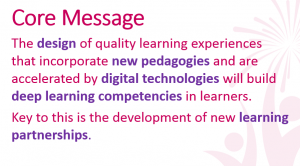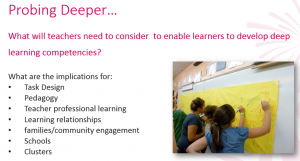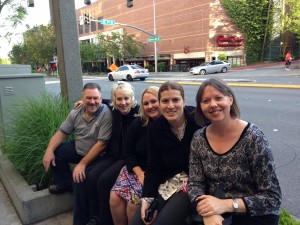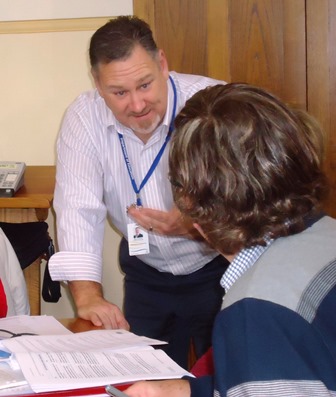If I could distil our work in this partnership down to one word, I think it would be “Connection”.
In our recent Seattle Institute, the global cohort, now joined by education leaders from Japan and Finland, worked through defining our core message.
Cluster Leaders all shared the strong desire of their participating schools to connect, to share and build new and best practice around explicit learning design and leading to create ad support the conditions for innovation and excellence to flourish.
Actively fostering new learning partnerships, between and among teachers, learners, family and community is at the absolute centre of our learning design and leadership.
Workshop activities “making this real” allowed us to build clarity and precision of focus around what this work looks like at all levels, from cluster, to school and classroom level.
Our challenge remains to contextualise global resources, taking into account national curriculum imperatives and drivers, whilst maintaining the directional vision of the partnership work. Pedagogy, Technology and Change Leadership are powerful levers; employed with explicit and elegant efficacy they remain the drivers for change across our work together.
So for me, “Connecting” – locally, nationally and globally, to define and redefine what we do as leaders, teachers and learners, to build a bank of shared and incisive practice, is the most exciting possibility this partnership presents. The Global Partnership supports Cluster teams, to build the knowledge, skills and competencies needed to transform learning in their clusters.
Interesting to read in the NMC Horizon Report: 2014 K-12 Edition the FastTrend Shift to Deeper Learning Approaches, and their definition of Deep Learning: “Deeper learning is a term increasingly used to describe a variety of approaches in which students gain knowledge and skills by investigating and responding to a complex question, problem or challenge.” The elements of authentic engagement in real world issues and problem solving again reflect “Connection” – of learners to learning. Implicit in this is the need for teachers to connect to and to understand their students’ interests and abilities, and design learning opportunities accordingly, focusing on the deep learning competencies of Collaboration, Communication, Creativity, Citizenship, Critical Thinking and Character.
It was fantastic to share the work in Seattle with my Australian colleagues in a rare opportunity to come together in person. Look forward to continuing to lead the shift together……





Leave a Reply